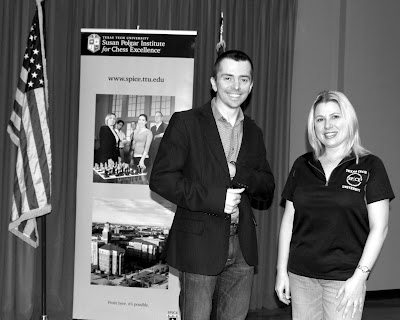
Under a New Scoring System, Fewer Ties and Drawn Games
By DYLAN LOEB McCLAIN
Published: November 13, 2010
A two-year-old scoring system may be the solution to two problems that have long bedeviled chess.
One is how to break ties at the end of tournaments. Complicated rules based on opponents’ scores have been used, as have tie-breaker games of varying lengths, but both have drawbacks.
The second problem involves games that quickly end in draws because the players do not want to battle it out or can earn more prize money by drawing a game. (In some tournaments, a draw at the end guarantees each player a share of the pot.)
One cure for prearranged or short draws was first used in Sofia, Bulgaria, a few years ago. It is a rule that prohibits players from offering a draw or from drawing before 30 moves have been played. But a way around it is to repeat a position three times, which under chess regulations is a draw.
Two years ago, the organizers of the first Bilbao Final Masters event tried another approach. Under their scoring system, wins, which had been worth 1 point, count for 3, and draws, which had been half a point, count for 1. The Bilbao system rewards wins and discourages draws.
The fourth Spice Cup, which ended last weekend at Texas Tech University, illustrated the benefits of the system.
In the tournament’s B division, which used the traditional scoring system, Anatoly Bykhovsky, an Israeli grandmaster, and Gergely Antal, an international master from Hungary, tied for first with 6 points each. Bykhovsky had three wins and six draws; Antal had four wins, a loss and four draws.
The A division used the Bilbao system and came up with a winner: Alexander Onischuk of the United States, who edged out Georg Meier of Germany, 18 to 17. Onischuk had five wins, two losses and three draws; Meier had four wins, one loss and five draws. Under the traditional scoring system, they would have tied with 6.5 points each.
Onischuk’s aggressive approach was rewarded in the last round, when he beat Ray Robson, a 16-year-old grandmaster from Florida.
More here.

No comments:
Post a Comment